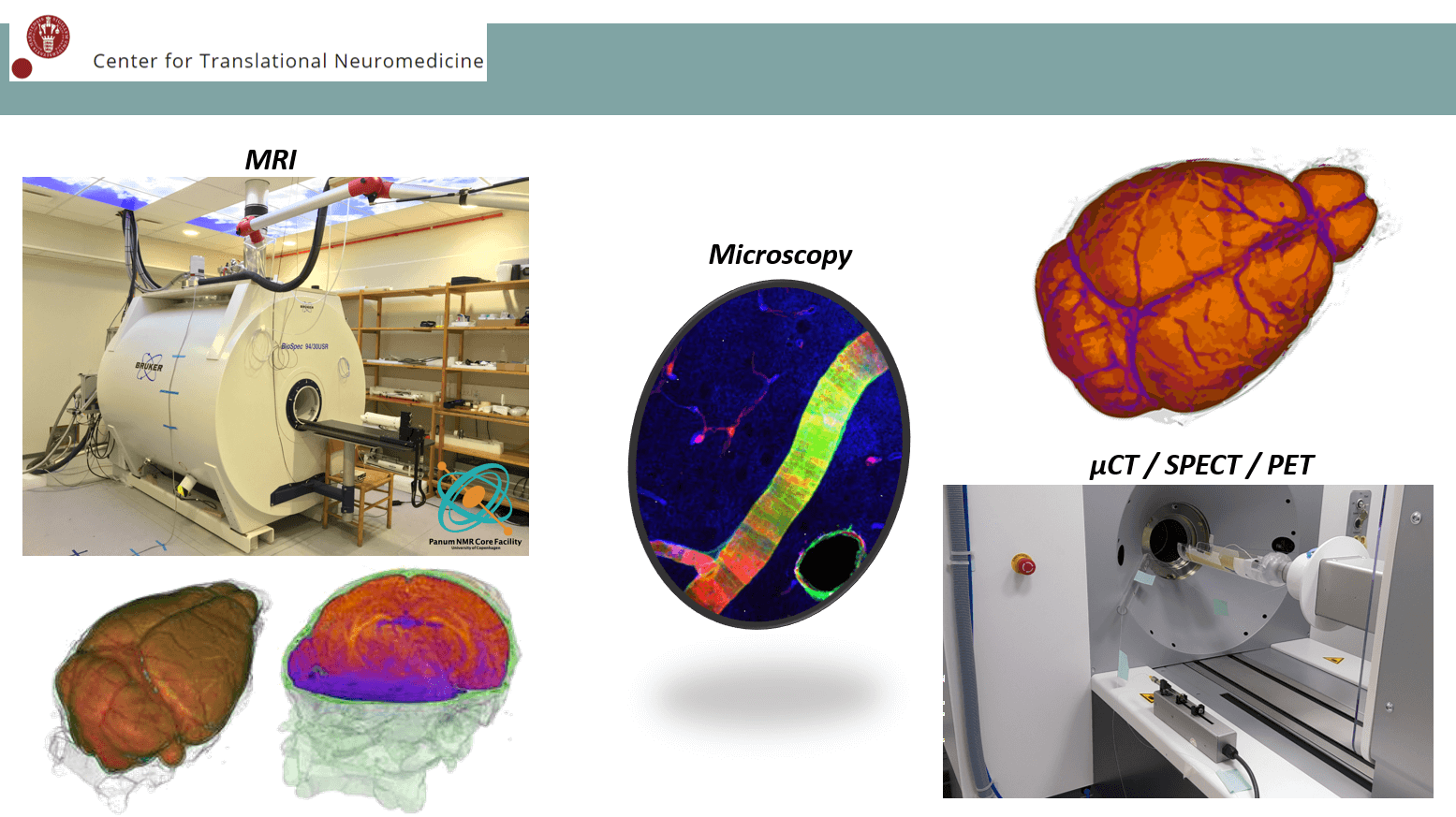Master thesis focused on neuroimaging of the brain’s glymphatic system using MRI and µCT
Would you like specialize in neuroscience and learn whole-brain in vivo techniques?
Would you like to participate in high-level research?
Would you like to carry on an interdisciplinary experiment in a dynamic team?
You are welcome to join us at the Center for Translational Neuromedicine (CTN) and Panum MRI Core!
Position to be filled by August 2024. Project time: 0,5-1 year.
The Lab: The project would take place at the Nedergaard Lab (Center for Translational Neuromedicine (https://ctn.ku.dk/research/nedergaard_laboratory/) and NMR Core Facility (https://nmr.ku.dk/) at the Faculty of Health and Medical Sciences, University of Copenhagen.
Together, both facilities house several micro and macroscopy units, SPECT/PET/μCT scanner and 9.4T ultra-high field magnetic resonance imaging (MRI) equipment along with a large variety of coils and peripheral devices. By using the most optimal setup for your experiments, you will have a chance to generate new and valuable data, analyze it, and draw important neuroscientific conclusions.
Project: The project will employ advanced imaging techniques, such as MRI and μCT, to visualize and quantify glymphatic function in animal models under different anesthesia protocols. By comparing the glymphatic activity levels and patterns between awake and anesthetized states, the study seeks to elucidate how anesthesia affects the efficiency and dynamics of waste clearance in the brain.
By joining us, you would help us to answer the question of how far the results found under anesthetic protocols impair the translational value for glymphatic MRI. Findings from this research endeavor would inform clinical practices involving anesthesia administration in neuroscience research and medical procedures, ultimately advancing our understanding of brain health and disease mechanisms. The exact project outline would be tailored to the specific skills and background of each candidate.
Candidate: The candidate should possess skills in small animal handling, and be of medical, biomedical, biophysical, or biological background. Skills in wet-lab or basic coding in Matlab or Python are superlative but not substantial. The candidate would receive training in MRI and μCT, and would be required to communicate and coordinate the experiment in a team-oriented manner.
Contact: Ryszard Gomolka, Assistant Professor at the Center for Translational Neuromedicine and MRI Core Facility. (ryszard.gomolka@sund.ku.dk)
Please send your 1 page CV along with a short 1/2 page motivation letter describing your to date background and interest.

